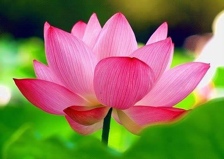Resources
Donations are Welcome
"Sharing the Merit, even if they give just one cent, people should have the motivation of putting a drop of water in the ocean. A drop of water on its own will easily evaporate, but in the ocean it will always remain." There are many ways you can contribute to WelcomingBuddhist for our future plans.
Calendar
- March 3, 2026
-
Search
To not become happy because of praise, To not become unhappy because of blame, To support one's own good virtues, This is the character of the supreme being.
If the intention is good, the levels and paths are good. If the intention is bad, the levels and paths are bad, Since everything depends on intentions it is important that we make them positive.
Do not do anything harmful to one another, do only what is good. Discipline your own mind to subdue negative emotions.
Do no evil whatsoever, practice virtue perfectly, tame your mind completely. This is the teaching of the Buddhist doctrine.
-

Interviews: Great Masters
DECLARATION
A) I wish to share a few important guidelines with regard to the misuse of my humble name by different Buddhist Monks, Yogis and Lamas. These are ones who are frequently visiting Taiwan or have settled in Southeast Asia or … Continue reading
This message translated,
This message translated, of most benefit to male genders, is: For the sake of non-discriminatory compassion, If you in your mind have compassion that is significant everyone will like you. If you have indiscriminate compassion everyone will respect you at … Continue reading
Teachings by Guru Rinpoche,
The second Buddha and incomparable Lotus-born master who we remember and honour on this tenth day of each month. To begin, I’ve chosen a profound teaching on refuge that Guru Rinpoche gave in answer to a request by the dakini … Continue reading
Interview with Kyabje Khyentse Rinpoche
His Holiness Dilgo Khyentse Rinpoche was one of the leading masters of the pith instructions of Dzogchen (the Great Perfection), one of the principal holders of the Nyingmapa Lineage, and one of the greatest exemplars of the non sectarian tradition in modern Tibetan Buddhism. He was a scholar, sage and poet,and the teacher of many important leaders of all four schools of Tibetan Buddhism. He passed away on September 27, 1991, in Thiumphu, Bhutan. Continue reading
Advice for Nyingma Practitioners
Clique aqui para Portugese
Since I am the eldest of the Nyingma lamas, I have been asked to share some humble thoughts and opinions with all those who have gathered here this year in the sacred place of Bodhgaya, India on the occasion of the Eleventh Annual Great Prayer Festival of the Early Translation School. I will therefore speak a few words of advice to express my point of view, so I hope you all listen well. Continue reading
Shechen Rabjam Rinopche Teaching
The Point of All This
Shechen Rabjam Rinpoche is the grandson of His Holiness Dilgo Khyentse Rinpoche. This is an excerpt from his book THE GREAT MEDICINE THAT CONQUERS CLINGING TO THE NOTION OF REALITY
If you’ve been practicing for years, you should be seeing some results, If you’re not, you may be missing the point.
The result of spiritual practice should be our inner transformation into better human beings. After practicing for months or years, we should be less prone to anger, pride, and jealousy. Our practice should lead us to a vaster, calmer mind. Continue reading
Thomas Merton in the Himalayas, vesite and Interview with Chatral Rinpoche Buddhist Review,
Thomas Merton in the Himalayas, An Interview with Harold Talbott
Excerpt from Tricycle: the Buddhist Review, Summer, 1992
In his best selling biography, the Seven Storey Mountain (published in 1948), Thomas Merton tells of his conversion to Catholicism and subsequent entry into Our Lady of Gehtsemani, A Cistercian abbey in Kentucky. to a world savaged by war, Merton’s embrace of a Christian life was made all the more authentic by his Cambridge-educated intellect, stunning candor, and the New York street humor he acquired while attending Columbia University.
Single handedly, he restored credibility to the very possibility of contemplative virtue which had long been denigrated by liberal intellectuals and traditional Christians alike. His was a voice of sanity, filled with sacred wonder, and replete with inquiry and contradiction.
Merton appreciated perspectives refined by their distance from the society and considered them essential to maintaining the health of the community. In fact, he spoke of the marginal view as an obligation for monastic’s and artists. From his cloistered outpost, Father Louis (as he was designated by the Church) kept a vigilant eye on the Civil Rights movement and anti-nuclear efforts, and in the last years of his life, he watched with undisguised frustration as the United States lost its footing altogether in Vietnam.
Political concern was one of Father Louis’ many departures from monastic tradition. A voracious reader and legendary correspondent, Merton’s interests extended beyond Church conventions and, under the influence of Zen scholar D.T. Suzuki, came to include Buddhism.
In 1968, after a quarter of a century if life in the monastery, and after repeated requests for permission to travel, the Order finally granted it’s most renowned and respected monk to leave for an Asian journey for the purpose of delivering a paper (on Marxism and Monasticism) to Asian monastic leaders in Bangkok. But before and after the conference, he would have ample opportunity to meet Buddhist masters.
Merton’s letters, made public in recent years, confirm that while he submitted to the rigors of monastic life, he was also a man of wild and sometimes whimsical enthusiasms:
